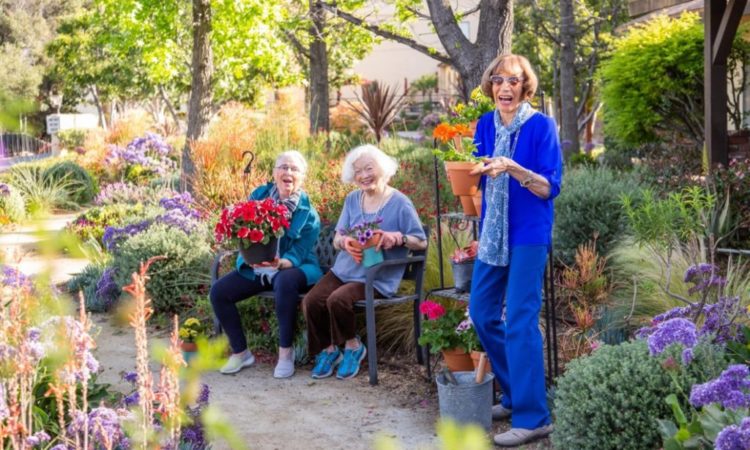Hollenbeck Palms
10 effective medication management tips for seniors

If your loved one lives in an assisted-living community, you have peace of mind that they are part of a medication management program that they need.
As a caregiver for a senior at home, however, implementing effective medication management at every step is challenging.
Your aging family member, like many others, is likely to carry many medicine containers. The use of five or more medications at once, can elevate health risks. Cognitive condition, various diseases and overall frailty are more reasons to make sure everything is done correctly.
Here are 10 guiding principles that can help you keep up with your loved one’s regimen in an effective and safe way.
Review prescriptions with doctor
The first step in understanding these complex medicine interactions is to learn as much as possible about the current medicines. Speak to their doctor and jot down details about usage, names, dosage and frequency and when they need to take them.
Also, include over-the-counter medicines, vitamins and supplements.
A good tip is to be next to your loved one during their next doctor’s visit.
Read labels
After meeting with your loved one’s doctor, conduct more research and expand your understanding.
It is helpful to carefully read labels, especially if your family member started something new. Knowing about dosage, interactions with other drugs and potential side effects is invaluable on this journey.
Organize medications
Use apps and specialized pill containers to avoid confusion and uncertainty.
Smart pillboxes are another tech-forward way to keep track and be a reminder of which medications are due.
Finding a system everyone can access and follow is a key ingredient in this organization.
Coordinate care
Whenever the opportunity presents itself, see if it is possible to minimize the number of doctors and pharmacists. A primary care doctor can coordinate care, promote good communication and help you make holistic medical decisions.
Working with one pharmacy can also ensure proper use and thus reduce the chances for adverse medicine interactions.
Understand adverse interaction
Reading drug labels more than once is a good strategy.
To gain greater insights about possible adverse interactions, read labels carefully. Just as important, check in and see how they feel after taking certain medicines or combinations. If anything seems off, contact the doctor. Some adjustments to the prescriptions could help.
Ensure pills are taken as prescribed
It can be easy for your aging loved one to forget to take their medications.
Consistency in keeping up with the doctor’s orders is essential; there is no proper medication and pain management without it. So do everything you can to develop a system and set reminders, so medications are taken as prescribed.
Learn about effects based on age
Since the body can process drugs differently with age, it is important to understand if your loved one’s medications are suitable for their age.
Ask your doctor or pharmacist if you have any concerns about whether certain medicines are age appropriate.
Remind loved one of dangers
It is common for some patients to increase their dosage when they are having a bad day. That is why it is vital to remind them about the dangers of this practice.
Overmedicating can increase the risks of adverse drug interactions or other harmful effects.
If you both feel that the medication dosage is not as effective as it once was, check with the doctor first to learn more.
Check list of unsafe meds for seniors
The American Geriatric Society lists medications that can be harmful to certain adults based on age. Some medicines must be used with caution.
Ask questions
Whenever a new drug is introduced, ask questions to understand compatibility and other drug details.
This is true for over-the-counter medications, as well.
At Hollenbeck Palms, we will ensure that your loved one is healthy, active and safe. We can take care of all of the above for you! Contact us today to hear more about what we offer to see if we are the right fit for your family.
Please e-mail [email protected] or call 323-307-4505.


